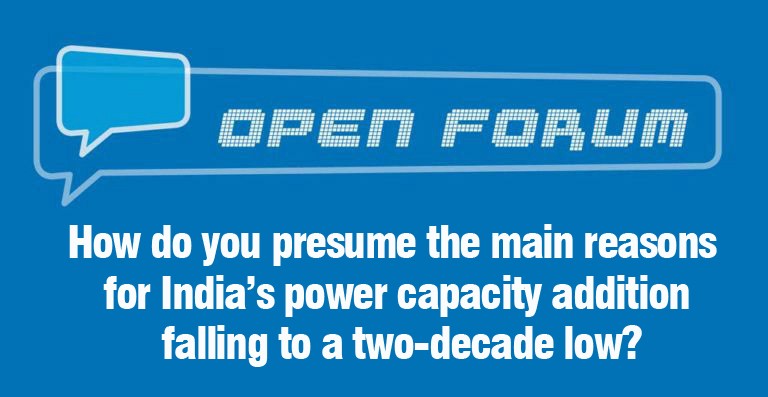How do you presume the main reasons for India’s power capacity addition falling to a two-decade low?
By EPR Magazine Editorial May 13, 2019 4:27 pm IST
By EPR Magazine Editorial May 13, 2019 4:27 pm IST


Mridul Chadha, Senior Analyst & Market Advisor, Climate Connect Technologies
There has been limited industrial growth, due to shifts towards a more services-based economy. This is in some respects an expected part of India’s economic development cycle, but it has reduced peak power demand. So, current installed capacity already gives significant oversupply. It is worth noting that the capacity mix has been changing, with large hydro and thermal having declined and solar and wind showing good growth.
Another significant event which contributed to this decline in capacity growth was mass demonetisation. Non-performance of assets in the power sector was indirectly exacerbated, with several plants owners having to shut down assets, rather than replace them.
While the slowdown in thermal capacity addition was partly compensated by growth in the capacity addition from the renewable segment (RE) in FY2017 and FY2018, the RE segment also witnessed a slowdown in FY2019 owing to issues such as uncertainty over GST rates and safeguard duty for solar power projects and delays in implementation for wind power projects caused by challenges related to land acquisition and transmission connectivity. Nonetheless, the capacity addition is expected to improve in FY2020 on the back of a large number of projects awarded by the Solar Energy Corporation of India (SECI) and state utilities in the wind and solar power segments. The capacity addition from the thermal segment is likely to remain subdued in the near term and would be mainly driven by the central and the state sector utilities. Moreover, the net capacity addition in the thermal segment is expected to be lower owing to de-commissioning of older units as seen over the past two years.
We use cookies to personalize your experience. By continuing to visit this website you agree to our Terms & Conditions, Privacy Policy and Cookie Policy.